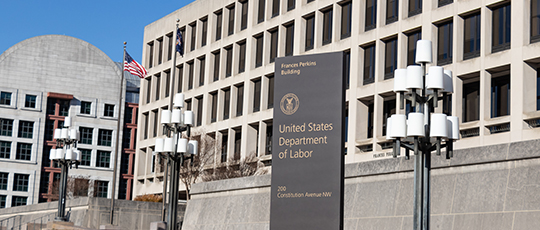- Establishing new standards. A new California law aims to set a minimum wage and improve working conditions for thousands of the state’s fast-food workers.
- Opposition from restaurant owners. A coalition of restaurant owners has moved to block the legislation, saying it will raise consumer costs and create a fractured economy with different regulations for different types of restaurants.
- Compliance considerations. Legal experts say the new law creates some additional compliance responsibilities for local and corporate franchisors.
- Following California’s lead. Legal experts predict that other states will move to adopt similar legislation in the near future.
On Labor Day, California Gov. Gavin Newsom signed legislation designed to establish new wage and workplace protections to improve working conditions and support the health and safety of more than 500,000 of the state’s fast-food workers.
AB 257, or the Fast Food Accountability and Standards Recovery Act, authorizes the creation of the Fast Food Council, a group comprised of representatives from labor and management to set minimum standards for workers in the industry, including for wages, conditions related to health and safety, security in the workplace, the right to take time off from work for protected purposes and protection from discrimination and harassment, according to a statement from Newsom’s office.
Just days after Newsom signed the bill into law, a coalition of restaurant owners moved to at least temporarily block the legislation.
As the Associated Press (AP) reported, a group known as Protect Neighborhood Restaurants has filed a referendum request with California’s state attorney general, the first step before the law’s opponents can begin gathering signatures. If the alliance of restaurant owners collects enough signatures, the law would not take effect unless it’s supported by a majority of voters, according to the AP.
If the law stands, it will create a 10-member Fast Food Council with equal numbers off workers’ delegates and employers’ representatives, along with two state officials, who will be empowered to set minimum standards for wages, hours and working conditions in California.
The law’s opponents, however, say it will raise consumer costs, is not necessary and will create a fractured economy with different regulations for different types of restaurants.
“As a result of backroom politicking, Governor Newsom has signed a lie into law and maligned all of California’s quick service small businesses and local franchisees as bad employers,” the Protect Neighborhood Restaurants said in a statement.
“It is saddening that the industry is looking for a way out of providing a seat at the table amongst all stakeholders,” the bill’s author, Democratic Assemblyman Chris Holden, told the AP, saying that fast-food workers make the multi-billion industry possible, and that “giving equal representation of employees and employers is the recipe for sustainable, long-term growth in an inclusive manner.”
From an organizational and compensation standpoint, the new law also presents some new compliance responsibilities for local and corporate franchisors, said Kaleb Berhe, a Los Angeles-based labor and employment associate at Foley & Lardner.
“Franchisors should be aware that, while the law does not require a specific wage increase, it does state that the Council may increase the minimum wage for fast-food workers up to $22 per hour on Jan. 1, 2023,” said Berhe.
Every year thereafter, the Council can increase the minimum wage by the lesser of 3.5% or the increase in the Consumer Price Index, explained Berhe. California’s minimum wage will be $15.50 per hour as of Jan. 1, 2023, he added, which “presents the possibility of an unprecedented jump in minimum wages that employers will have to scramble to comply with in just a few months.”
The law also creates a private right of action for employees to bring retaliation and discrimination claims, said Berhe, on the basis of a broad category of protected activities including reporting workplace health and safety concerns, participating in meetings with the Council or its local counterparts, and refusing to work because of a “reasonable belief” in potential workplace health and safety violations.
“California has always been the leader in progressive employment laws,” said Berhe, who predicts that we’ll see other states enacting similar legislation in the days ahead.
“This law presents an opportunity for other states to observe how the fast-food industry adapts to this landmark legislation. Given the recent national attention on worker safety and health and the overall decrease in union activity in recent decades, it is likely that other progressive states will try to pass similar legislation in the coming years.”
Karen Tynan, a shareholder in the Sacramento office of labor and employment law firm Ogletree Deakins, agrees with that assessment.
“We know that, historically, California leads the nation in many areas of worker protections and business burdens,” said Tynan. “The old saying, ‘As California goes, so goes the nation’ is expected to be true in this case.”
Upon signing the legislation, Newsom “reminded Californians that this new law is part of a continuing pattern of legislation including the warehouse worker, garment industry and child-care worker laws that have been passed in recent years,” she said. “There is no reason to believe this trend will stop in California, and there’s no reason to believe other states will not follow suit.”
The new Fast Food Council’s power to review health, safety and employment standards, and to make recommendations, is expected to be a method whereby additional California labor code statutes and other regulations can be added to this industry, said Tynan, adding that “the ability of larger cities to have the local fast-food councils may also lead to further recommendations and additional regulations related to these establishments.”
Tynan advises local and corporate franchisors to closely monitor and likely participate in state or local fast-food councils, noting that such councils’ recommendations will carry significant weight with legislators, and that franchisors should be prepared for wage and hour claims based on this regulation.
“Compliance with the minimum wage and additional working condition regulations will be critical as they are established.”
Editor’s Note: Additional Content
For more information and resources related to this article see the pages below, which offer quick access to all WorldatWork content on these topics:








